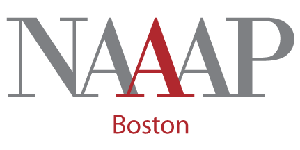
Growing up it was hard for me to understand what it meant to be Asian American and specifically Chinese American because there were no other Asian Americans around. I grew up in suburban Massachusetts, in a town called Acton. Right now, Acton actually has a really large Asian American population that is mostly Chinese and South Asian. But when I grew up it was predominantly White. My dad landed in Acton because he went to school in Boston and my parents just wanted to settle primarily where his networks were.
I’m third generation Asian American and in our house we grew up speaking English. We ate with forks and knives and had spaghetti and meatloaf. I think because my parents were geographically isolated, they assimilated into being American because there were no Asian grocery stores nearby. They had to make do with what they could.
I remember in kindergarten, one of my teachers had black hair so I immediately thought she was Chinese. That’s what I thought it meant to be Chinese, to have black hair. Later my mom told me she
Every once in a while, my family would go into Chinatown and have dim sum. My parents would make fun of me because I would only eat what the White people would like to eat at dim sum and I wasn’t very good with chopsticks. It was really hard to figure out what it all meant without a substantial Chinese or Asian American community around me. My parents did as much as they could to expose me to Asian American history growing up. I did a report on the Japanese interment camps in the 7th grade and I wrote about the Chinese Exclusion Act for a research paper in 6th grade. So I learned about all these things through reading but not by being exposed to a community.
My parents really cared about my education and were supportive in helping me with doing well in school but I think their involvement really was all about me learning about myself. They were never like, ‘Delia you have to get As’. In my town, you got to choose the elementary school that you went too, and I went to a more hippie elementary school. We didn’t even get grades! I didn’t get a grade in my life until the 7th grade!
My parents encouraged me to also be active, do sports, and be engaged. They really wanted me to be well-rounded and didn’t want me to focus on one singular thing.I really appreciate the way they engaged with me growing up and I recognize that is a privilege for them to give me space to do those kind of things. They really valued me being happy and fulfilled. It’s not just about achieving certain things or becoming a doctor. It’s about being happy and giving me the space to explore what I really wanted to be versus doing what I was suppose to do.
I work at Northeastern University as the Director of the Asian American Center and been at Northeastern for over 9 years. I think I’m really lucky that my job is something I’m passionate about and it’s a career that I’m able to grow and learn from. I know not everybody has the opportunity to find a path that compensates them financially, feeds their soul, and also create change in the world. Those are all things that I care about deeply and I think that’s what I need in my work to show up and leave my kids.
My big thing right now is paid family leave. I think there’s a lot of articles and talk about women in the work place, family paid policies, and how can women have it all. I’m tired of it being so focused on White women and especially the privilege White women experience. I’m really interested in seeing how to translate that in creating change in the work place and work culture because I feel like work culture don’t value motherhood. I want to find ways to create change in that whether it’s through legislations, through family leave policies, or creating an environment where motherhood is seen as an asset and not a liability. I want to be part of that change.
Connect with Delia Cheung Hom on LinkedIn!
Source: http://storiesofasianamerica.com


